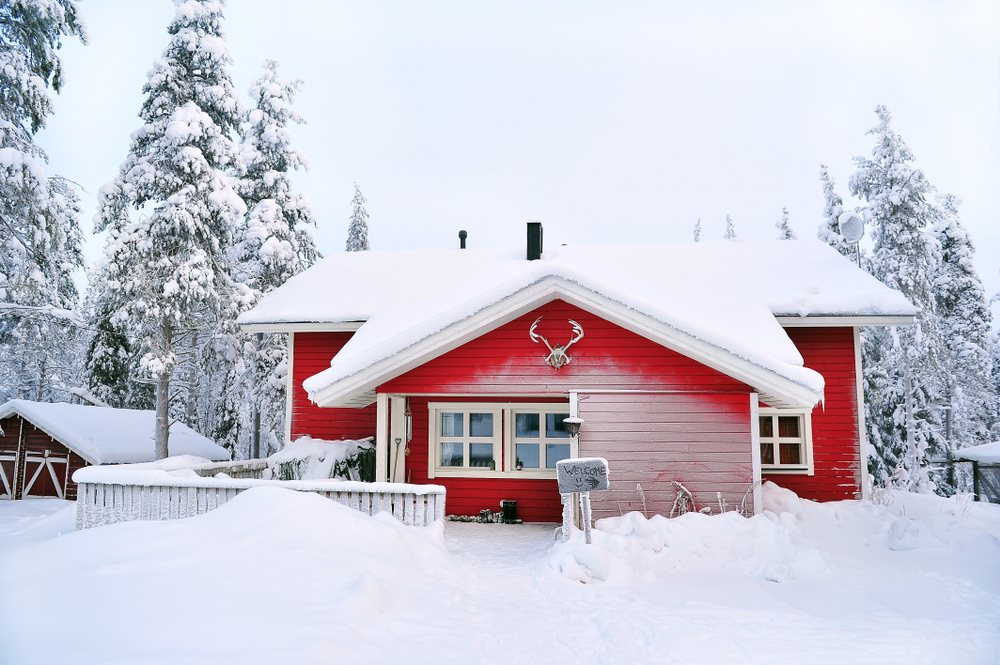
For those who live in a climate that is distinctly divided by a variety of temperatures, it’s not uncommon for individuals to own seasonal properties as well as seasonal vehicles.
When it comes to insurance, seasonal properties aren’t considered a standard and require specific policies while they are in use.
However, while having the right insurance during the warmer months is important, what do you do with your policy during the wintertime?
The obvious answer may be to cancel your policies during the winter but this is not advisable. Canceling insurance means canceling the protection of your seasonal property or vehicle.
So, before you pull the plug on your seasonal insurance, let Capital Insurance Brokers show you what seasonal insurance is and what your options are in the wintertime:
What is Seasonal Insurance?
Seasonal insurance is a specific insurance product that covers your vehicles and properties that are only used during a certain portion of the year – mainly the spring and summer months.
This type of insurance policy protects your seasonal property and vehicles from specific perils such as theft, damage, vandalism, fire, and more.
When it comes to seasonal properties such as camps and cottages, many policies can also cover any personal belongings left on the property such as appliances and furniture.
While this is all great and good for when you are using your cottage or summer car, what happens in the winter when these things are no longer in use?
Just because they are not in use doesn’t mean the unforeseeable cannot happen.
Fortunately, you have options when it comes to protecting your properties and vehicles during the wintertime that won’t break the bank!
Seasonal Property Insurance

When you own a cottage, trailer, or any other additional property that you enjoy in the summertime, it’s important to have a solid insurance policy to protect your interests.
However, once it’s time to pack up and head home for the colder months, it’s important to understand how your policy works while the property is unoccupied.
One important thing to keep in mind is that vacancy can actually void your policy. Many insurance carriers require specific standards that must be kept in order to maintain your coverage.
If you have coverage on a seasonal property, check with your insurance broker or agent to see how many days you leave your property unattended before the policy is voided.
However, it is possible to get what is called “cottage insurance” or “recreational property insurance” that provides your property with named-peril coverage instead of comprehensive or all-risk coverage.
This means that your seasonal property will have insurance coverage for specific risks such as fire and smoke damage. Risks such as water damage can be difficult to get coverage for because the property will remain unoccupied in the winter.
This is why it’s important to properly winterize your property to avoid broken and burst pipes that can lead to expensive water damage.
Recreational property insurance does not cover motorized vehicles, campers, and trailers.
But despite these caveats when it comes to keeping your seasonal property insured during the wintertime, you can opt for additional coverages such as insurance the contents of your property, detached private structures (boathouses, garages, sheds, etc.), and any watercraft that you own.
Seasonal Vehicle Insurance
If you drive a vehicle in the summertime but store it in the winter, you’re probably wondering if you need car insurance coverage during these months.
It’s not recommended that you completely cancel your car insurance on a vehicle in storage. This will help protect your vehicle if it is stolen or damaged.
It will also prevent your premiums from going up in the spring. The months that you do not insure or drive your vehicles will create a “gap” in your insurance history which is a determining factor when it comes to policy rates.
In order to save money on your insurance costs while keeping your seasonal vehicle safe, you can keep the policy active by maintaining comprehensive coverage and canceling the collision coverage.
You won’t be driving the vehicle during the wintertime, so there are portions of your policy that you can do without until you take your vehicle out of storage in the spring.
Keep in mind that this also applies to motorcycles as well!
Your Seasonal Insurance Options
Capital Insurance Brokers are dedicated to helping you get the best value on your seasonal property insurance to ensure that your property and vehicles are well-protected during the winter months.
Our expert brokers will explore your individual situation to find an insurance product that is right for you.
So as the temperatures continue to dip, don’t leave your seasonal properties out in the cold! Contact us today for more information about keeping your investments properly insured.

